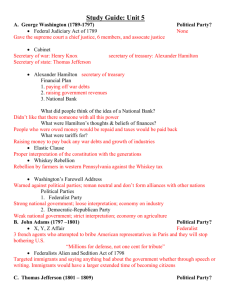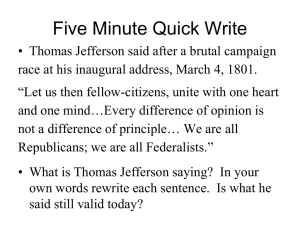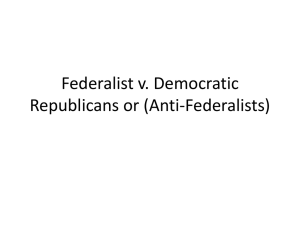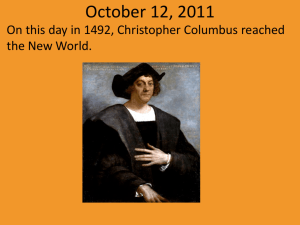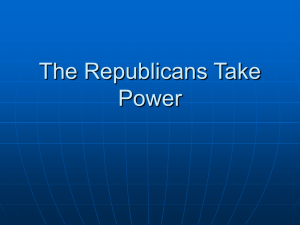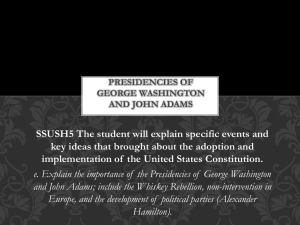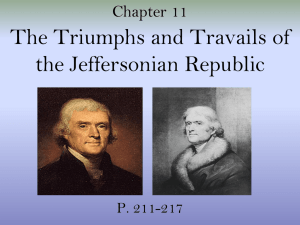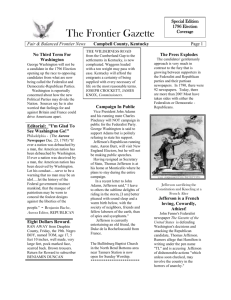1800 Thomas Jefferson and John Adams contend for Presidency
advertisement
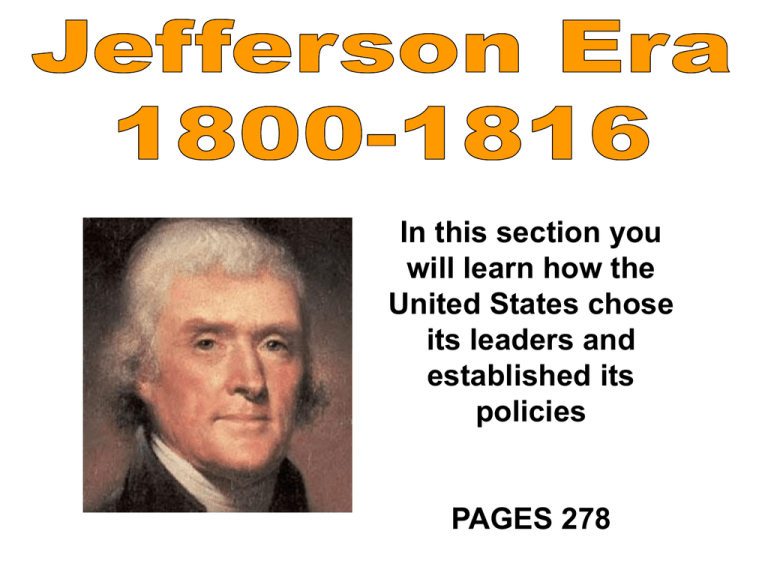
In this section you will learn how the United States chose its leaders and established its policies PAGES 278 Means let the people do as they wish. Doing what you want to do Taxes on foreign imported goods Constitution is the supreme law of land When there is a conflict between the constitution and any other law, Const. must be followed The judicial branch has a duty to uphold the Constitution 1800 Thomas Jefferson and John Adams contend for Presidency 1801 Judiciary Act expands court system Mar 1801 Jefferson is inaugurated 1803 Marbury v. Madison sets precedent for judicial review Federalist supported John Adams and Charles Pickney of S. Carolina for V.P. Republicans nominated Thomas Jefferson for president and Aaron Burr of New York as his running mate. Candidates and their friends wrote letters to leading citizens and newspapers to spread their views Candidates and their supporters spread their views through television, internet, phone, etc… The election was deadlocked. Both Jefferson and Adams each received 73 votes. The H.O.R had to decide the election. This time the electors voted for each presidential and vpresidential candidate individually rather than voting for the party’s candidates as a team The Federalist supported Burr to prevent the election of Jefferson. Hamilton distrusted Burr but was not a friend of Jefferson either. To prevent another showdown between a presidential and a vicepresidential candidate, congress passed the 12th Amendment to the Constitution in 1803. This amendment (1804) requires electors to vote for the president and vice president on separate ballots. Jefferson became president Thomas Jefferson was inaugurated on march 4, 1801. In his inaugural Address Jefferson tried to close the gap between the political parties. Supported states’ rights Believed in independent farmers Ownership of property Expanding the nation westward to acquire more land Federal Government should be kept small Distrusted standing armies / reduce the size of the military Reduce national debt that Federalist had left Scaled down military expenses When Jefferson entered office, he surrounded himself with men who shared is Rep. principles. Sec. of State James Madison Sec. of Treasury Albert Gallatin The new government ended the 2 unpopular Federalist measures. Sedition Act & Naturalization Act Albert Gallatin who was secretary of treasury aimed to reduce the national debt. They cut the army by 1/3 Reduced the navy from 25 ships to 7 ships Repealed the whisky tax Customs duties - taxes on foreign imports Jefferson thought that the main responsibility of the national government should be limited to delivering the mail, collecting customs, duties, and conducting a census every 10 years In 1801 The Federalist had passed the Judiciary Act. This act set up regional courts for the U.S. with 16 judges and many other officials. When Adams was about ready to leave office, he made hundreds of appointments to these positions. Congress, who were mainly Federalist, approved the presidents appointment. Adams had asked John Marshall to serve as Chief Justice of the US. Adams & Marshal worked around the clock in the final hours of the Federalist government processing papers for these judicial appointments. The appointment would take effect, once the commissions (papers) were delivered to these “midnight” judges. When Jefferson found out, he told Sec. of State Madison NOT TO DELIVER THEM! One of the commissions was William Marbury!
